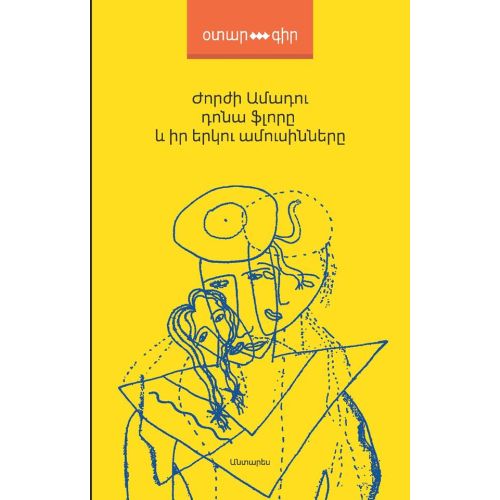Description
Jorge Amadok
Amado's tale is of a woman's unlikely path to happiness. It is a vast panorama of life in the town of Salvador, Bahia. The novel opens with the sudden death of Dona Flor's husband, Vadinho, who collapses in the midst of Carnival celebrations. He is dancing a samba in the streets when his heart gives out, a surprise to all as Vadinho had spent his entire life gambling, partying and drinking with no hint of problems. His nights on the town and his two-timing had been supported by sponging off Dona Flor, the owner of a successful cooking school and his demands for money had been a constant worry and cause of sleepless nights for her. The women of the town thought she was well rid of him. But after Vadinho's death, he remained the love of her life and she missed his seductiveness. He was irresistible, and his absence was, for Dona Flor, worse than the long nights when she waited for him to come home.
After a period of mourning, Dona Flor attracts another admirer, a local pharmacist, Teodoro. Unlike Vadinho he is a pillar of respectability, kind and considerate. Dona Flor accepts his proposal. While her new husband lacks the passionate sensuality of Vadinho, he compensates by providing a life free of worry. But, on the first anniversary of her marriage, Vadinho returns. He is now a ghost, but has lost none of his old ways. His activities create commotion everywhere, from Dona Flor’s marriage bed to the local nightspots. She is torn between her attraction to the ghost and her desire to continue as the faithful wife of Teodoro, who has no idea what is going on.
Jorge Leal Amado de Faria (Brazilian Portuguese: , 10 August 1912 – 6 August 2001) was a Brazilian writer of the modernist school. He remains the best known of modern Brazilian writers, with his work having been translated into some 49 languages and popularized in film, notably Dona Flor and Her Two Husbands in 1978. His work reflects the image of a Mestiço Brazil and is marked by religious syncretism. He depicted a cheerful and optimistic country that was beset, at the same time, with deep social and economic differences.
He occupied the 23rd chair of the Brazilian Academy of Letters from 1961 until his death in 2001.
<
| Author(s) | Jorge Amado |
| Language(s) | Armenian |
| Publisher(s) | Antares |
| Year | 2017 |
| Pages | 776 |
| Binding | hardcover |
| Printing | Black & White |
| Size | 13 x 21 cm |
| ISBN | 9789939760742 |

